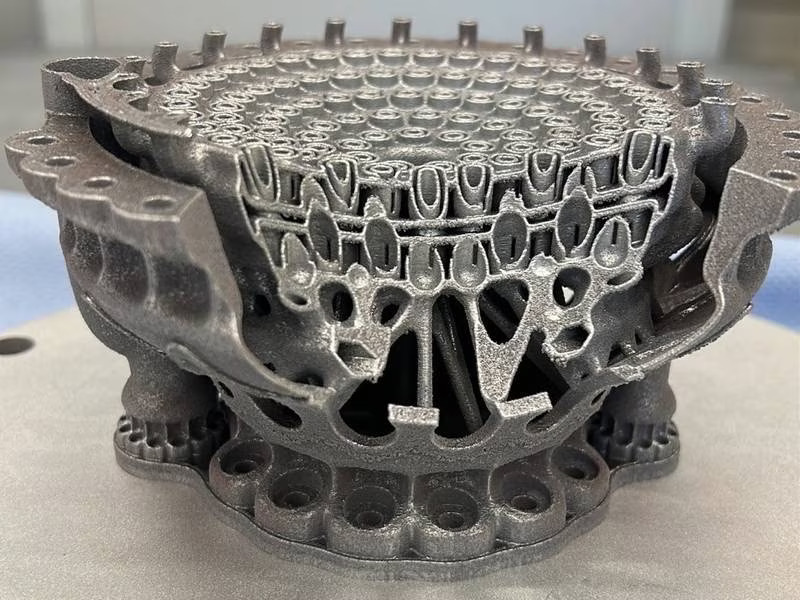Dubai’s LEAP 71 is at its forefront of a ground-breaking project, designing 3D-printed rocket engines using modern technologies. The Computational Engineering Model, an innovative programme they developed to establish algorithms for spacecraft system design and assembly, is central to their endeavours. This cutting-edge technique has the potential to revolutionise spacecraft system development, providing not just cost savings but also shorter building timetables.

LEAP 71, which recently established its headquarters in the UAE, has attracted a lot of interest after forming a strategic relationship with Europe’s The Exploration Company (TEC). They are collaborating on the creation of propulsion systems that TEC plans to put into its rockets. According to LEAP 71 creator Josefine Lissner, the engine’s expected test fire is scheduled for the following year.
LEAP 71’s innovation has significant potential for the aerospace sector. If the engine functions as expected, it might have a profound influence on how spaceship systems are designed and built. This might lead to more efficient procedures, lower costs, and faster technical developments.

The partnership with TEC is an important milestone for LEAP 71, establishing them as a vital participant in the space business. In addition to their work with LEAP 71, TEC is actively involved in the development and construction of a reusable space capsule called Nyx. Furthermore, they just signed a deal with Axiom Space to provide freight transportation services for a commercial space station project they are leading.
The creation of LEAP 71 operations in Dubai fits in perfectly with the UAE’s desire to become a regional epicentre for spacecraft system development. The government has made a deliberate effort to recruit space enterprises, establishing the groundwork for a thriving commercial space economy.

